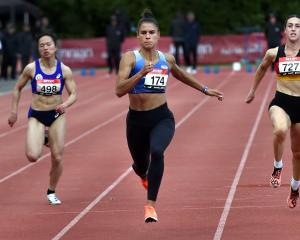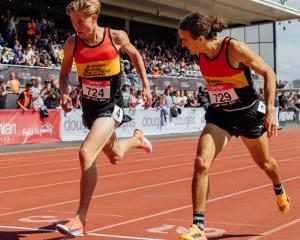The Otago Daily Times reported last week the New Zealand Olympic Committee had handed back its quota spot for a female biathlete to compete in Sochi after Murphy, a 2010 Olympian, fell short of the NZOC selection criteria, despite meeting International Olympic Committee standards set by the International Biathlon Union.
On Saturday, the Australian Biathlon Association announced the ''very exciting news'' that, following reallocation of Olympic spots, Australia had received one male place and one female place at Sochi.
The Australian Olympic Committee said the reallocation meant Australian biathlete Lucy Glanville had ''emerged from the wilderness to make a surprise appearance'' at the Olympics.
Glanville (19) had an ''agonising wait to see if seven higher-placed nations would forgo their athlete allocations - and they did'', the AOC statement said.
One of those higher-placed nations was New Zealand.
Canadian-based Murphy (25), who trains in Wanaka during the southern hemisphere winter, is in Europe.
Her parents, Jim and Patsy Murphy, also of Canada, said in an email yesterday the ''Aussies have it right'' regarding participation in the Olympics.
''The present situation is totally based on the ignorance of the NZOC regarding the sport of biathlon and the original intention, and spirit, of the Olympics,'' the Murphys wrote.
''To send only potential podium finishers to the Winter Olympics from New Zealand is short-sighted on NZOC's part ... we scratch our heads as to how NZOC expects to grow emerging winter sports like biathlon when they basically punish their only World Cup New Zealand biathlete, who was striving to make, and who did successfully meet, IOC and IBU qualification criteria several times.
"Something is wrong here. Seriously wrong.''
Biathlon New Zealand executive committee chairman John Burridge agreed, and said the AOC followed IBU selection standards, ''as we believe we [New Zealand] should''.
He said Glanville was not in the same league as Murphy.
The Australian had met the Olympic qualification times just twice at the IBU Cup during the past two seasons and had not competed at world cup level the way Murphy had.
''Sarah is a far better athlete. It absolutely sticks in our craw ... [Glanville] has taken a place that in our view should have gone to Sarah.
"We can't prove of course that it's Sarah's place that has been allocated to her. But on the other hand, Sarah's not going means there is another place available.
''Sarah's place at the Olympics was established if she had been allowed to go by NZOC.''
NZOC criteria contradicted IBU's goal of enabling a range of countries to participate in the sport, as promoted by the Olympic Charter, Burridge said.
''New Zealand's obsession with medals is not what the Olympics is about.''
NZOC chief executive Kereyn Smith said the committee had been tracking Murphy's progress and been in close communication with BNZ regarding her Olympic prospects for almost a year.
''[Murphy] had the opportunity to lift her results in the last two or three world cups but that wasn't achievable,'' Smith said.
Murphy's ''regrettable'' situation - where she was not up to nomination standard - was not unusual in New Zealand.
The public expectation was for New Zealand athletes to perform ''with credit'' at the Olympics, Smith said.
''At the previous games in Vancouver the standards for winter sports were considerably lower and after that, in the debrief by all stakeholders, it was unanimously agreed the standards needed to be higher.
''They weren't at the level where people wanted to see New Zealand athletes finishing.''
Smith said Olympic committees were empowered by the Olympic Charter to have their own selection standard, which was done in different ways across the world.
''Many countries have standards not dissimilar to our own.''
Regarding Glanville's selection, in place of the better-performing Murphy, Smith said: ''I don't know if that's unfair, because it's high-performance sport. The standards have been set ... it's quite variable across the 204 [Olympic] nations.''
Although the selection policy was now ''well-entrenched'', national sports bodies such as BNZ could debate it at NZOC's annual meeting.












